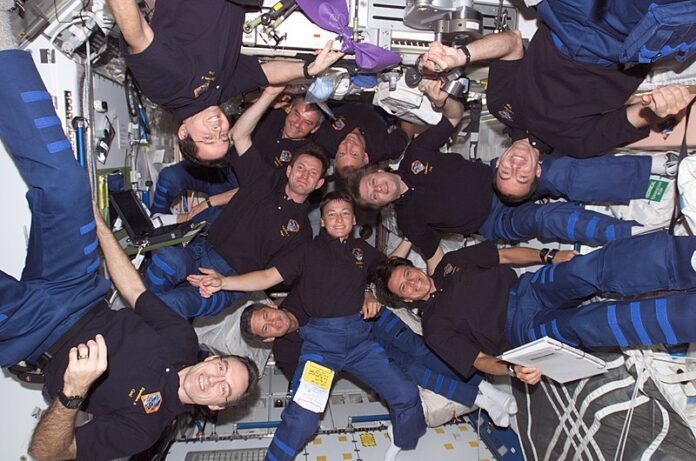Non-native English speakers face several barriers in conducting activities in מדע. They are at disadvantages in reading papers in English, writing and proofreading manuscripts, and preparing and making oral presentations in conferences in English. With little support available at institutional and societal levels, non-native English speakers are left to overcome these disadvantages in building their careers in science. Given 95% of world population is non-native English speakers and general אוכלוסייה is the source of researchers, it is imperative to address the issues faced by them in conducting scientific activities because science can ill afford to miss contributions from such large untapped pool. Use of מבוסס AI tools could reduce language barriers for “Non-native English speakers” in science education and research by providing good quality translations and proofreading. אירופאי מדעי uses AI-based tool to provide translations of articles in over 80 languages. Translations may not be perfect but when read with original article in English, it makes comprehension and appreciation of the idea easy.
Science is perhaps most significant common “thread” that unifies human societies ridden with ideological and political fault lines. Our lives and physical systems are largely based on מדע and technology. Its significance is beyond physical and biological dimensions. It is more than just a body of knowledge; science is a way of thinking. And we need a language to think, to access and to exchange ideas and information and to disseminate advancements in מדע. זה איך מדע progresses and takes humanity forward.
מסיבות היסטוריות, האנגלית הופיעה בתור שפה משותפת עבור אנשים מקבוצות אתניות שונות ואמצעי חינוך ומחקר מדעיים במדינות רבות. קיים בסיס ידע ומשאבים עשיר באנגלית הן עבור "אנשים במדע" והן עבור "קהלים כלליים בעלי חשיבה מדעית". בגדול, אנגלית שימשה היטב בחיבור בין אנשים ובהפצת מדע.
כדובר אנגלית שאינו שפת אם מעיירה קטנה, אני זוכר שהשקעתי מאמצים נוספים בימי הקולג' שלי בהבנת ספרי לימוד וספרות מדעית בשפה האנגלית. לקח לי כמה שנים של השכלה אוניברסיטאית להיות נוח עם אנגלית. לכן, בהתבסס על ניסיוני האישי, תמיד חשבתי שדוברי אנגלית שאינם דוברי מדע שפת אם חייבים להשקיע מאמץ נוסף כדי להשתוות לדוברי אנגלית כשפת אם מבחינת היכולת להבין מאמרי מחקר רלוונטיים ולתקשר בצורה יעילה באמצעות כתבי יד בכתב ומצגות בעל פה בסמינרים ובכנסים. סקר שפורסם לאחרונה מספק ראיות משמעותיות התומכות בכך.
במחקר שפורסם ב-PLOS ב-18th July 2023, the authors surveyed 908 researchers in סביבתי sciences to estimate and compare the amount of effort needed to conduct scientific activities in English between researchers from different countries and different linguistic and economic backgrounds. The result showed significant level of language barrier for non-native English speakers. The non-native English speakers need more time to read and write a paper. They require more efforts to proofread a manuscript. Their manuscripts are more likely to be rejected by the journals due to English writing. Further, they face major barriers in preparing and making oral presentations in seminars and conferences conducted in English. The study did not factor in mental stress, lost opportunities and cases of those who dropped out due to language barrier hence overall consequences on non-native English speakers are likely to be more severe than found by this study. In the absence of any institutional support, it is left on non-native English speakers to make extra efforts and investments to overcome the barriers and build careers in science. The study recommends provision of language-related support at institutional and societal levels to minimise the disadvantages for non-native English speakers. Given 95% of the world population is non-native English speakers and general population is the ultimate source of researcher, provision of support at institutional and societal levels is imperative. The society can ill afford to miss contributions in science from such a large untapped pool1.
בינה מלאכותית (AI) היא פיתוח מדעי אחד שיש לו פוטנציאל לטפל בכמה מהבעיות החשובות העומדות בפני דוברי אנגלית שאינם שפת אם בעלות נמוכה מאוד. כלי AI רבים זמינים כעת באופן מסחרי המספקים תרגומים עצביים באיכות טובה כמעט בכל השפות. כמו כן, ניתן לבצע הגהה של כתבי יד באמצעות כלי בינה מלאכותית. אלה יכולים להפחית את כמות המאמץ והעלות בתרגומים והגהה.
לנוחותם של דוברי וקוראים שאינם דוברי אנגלית, אירופאי מדעי משתמש בכלי מבוסס AI כדי לספק תרגום עצבי באיכות טובה של מאמרים בלמעלה מ-80 שפות המכסים כמעט את האנושות השלמה. תרגומים אולי לא מושלמים, אבל כשקוראים אותו עם מאמר מקורי באנגלית, ההבנה וההערכה של הרעיון הופכים קלים. כמגזין מדעי, Scientific European מיועד להפיץ התפתחויות משמעותיות במדע ובטכנולוגיה לקוראים כלליים בעלי גישה מדעית, במיוחד מוחות צעירים שרבים מהם יבחרו בקריירה במדע בעתיד.
***
מקור:
- Amano T., ואח' 2023. העלויות הרבות של להיות דובר אנגלית לא שפת אם במדע. PLOS. פורסם: 18 ביולי 2023. DOI: https://doi.org/10.1371/journal.pbio.3002184
***






































